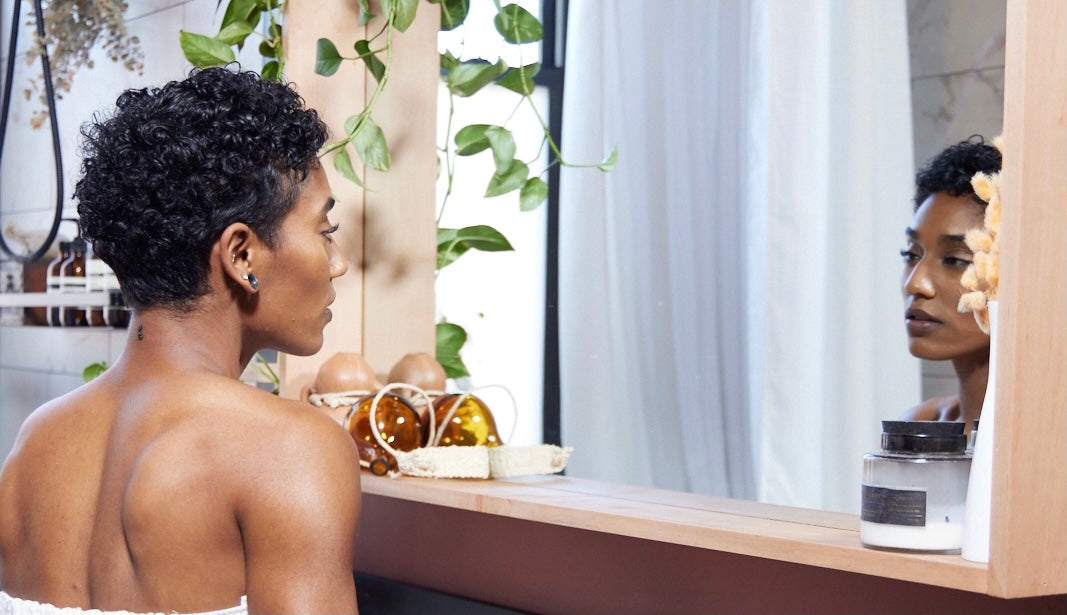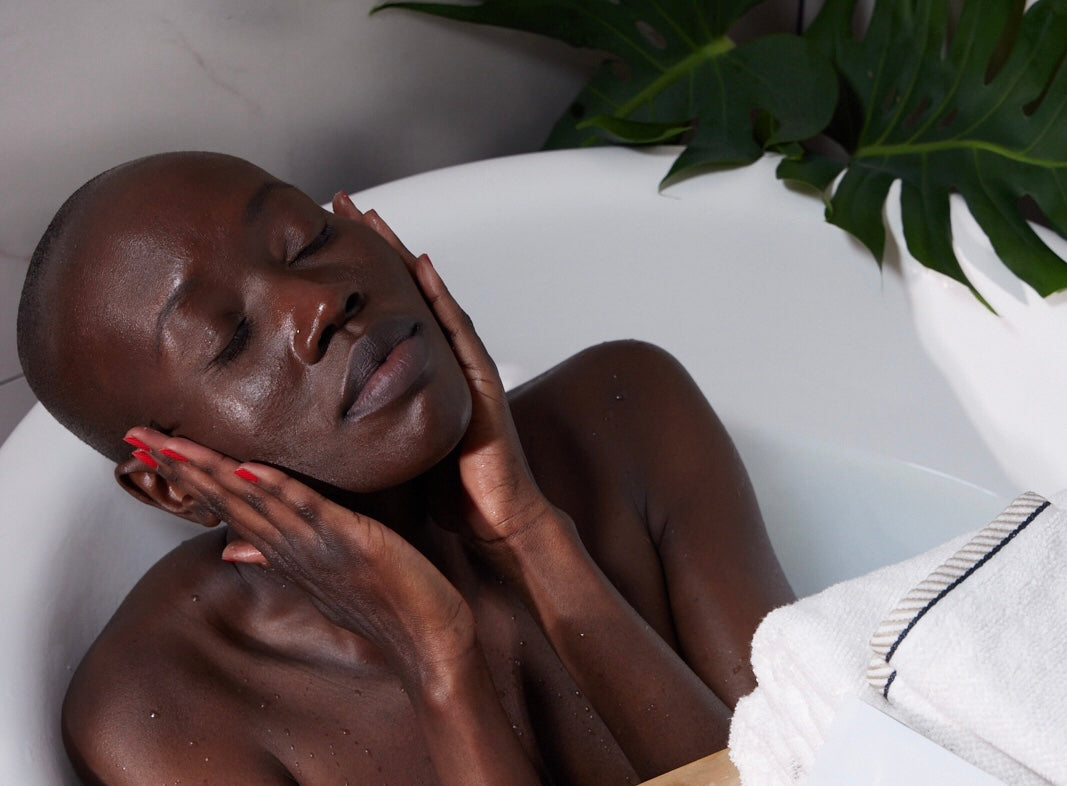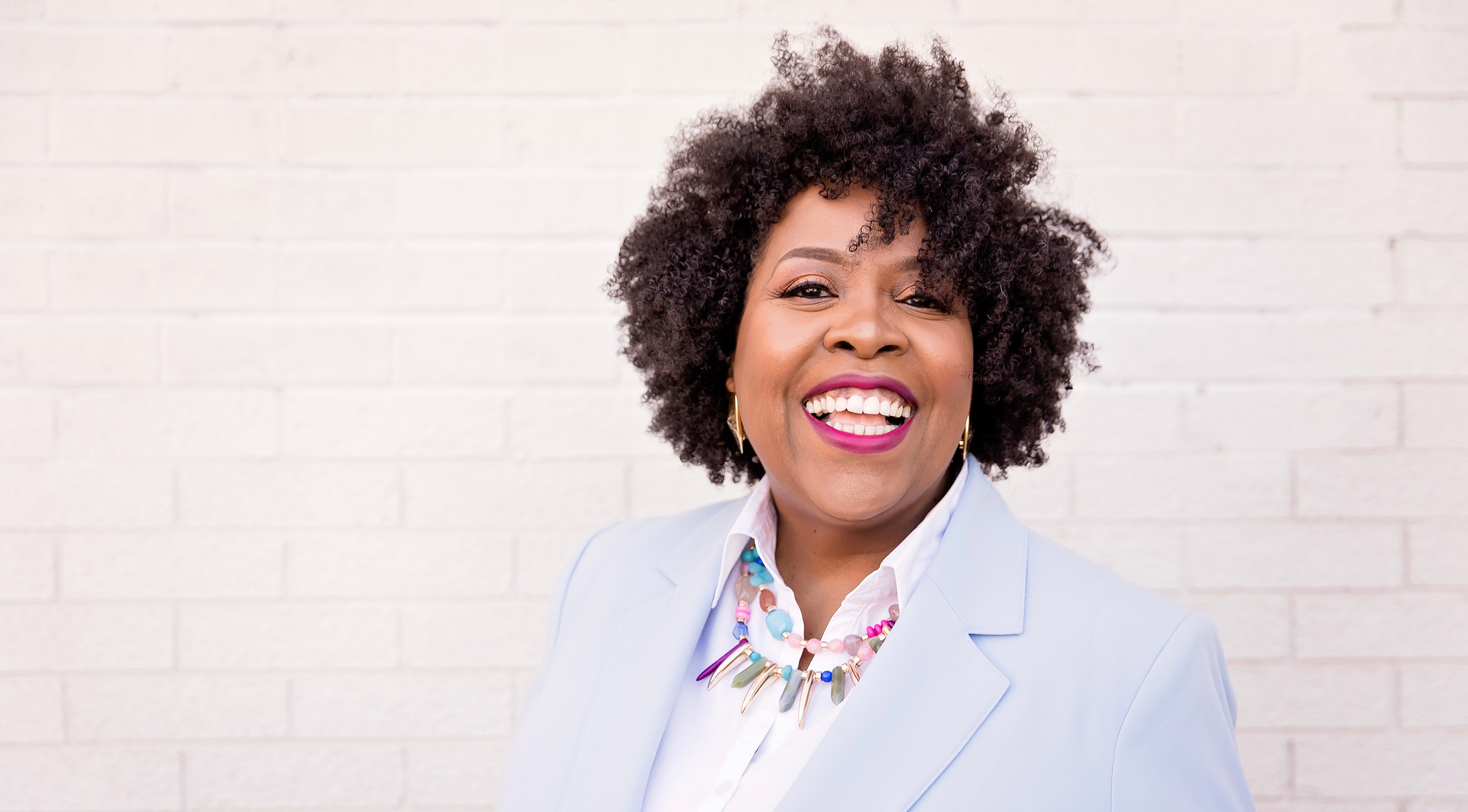
The Unpretty Sides of Self-Care
Two-thousand and twenty was a year like none other – a global pandemic, national protests, presidential impeachment + election and more all combined to create what many people deemed the year from hell. We quarantined, worked from home, attended school virtually, socially distanced ourselves from others, stockpiled tissue, and most importantly, survived – by any means necessary. And a large part of our survival was based on our ability to care for ourselves. 2020 may have been the year from hell, but it undoubtedly captured our attention. And among the many things we learned, was the art of self-care.
Self-care has many definitions, but at its core is the prioritization of activities that promote our mental, physical + spiritual health. The term, self-care, originated as a medical concept in the 1950s, as healthcare providers urged patients to adopt healthy habits and educate themselves regarding their medical conditions. The Civil Rights Movement and Women’s Rights Movement of the 1960s popularized + politicized the term again, emphasizing the importance of mindfulness, meditation, nutrition, and wellness. But if it feels like self-care and any other variation of the words has been everywhere lately, you can kindly thank social media + millennials.
You need only search #selfcare on social media to discover the latest trends of mani-pedis, facial masks, massages + more. And while all of these things are essential components of self-care, we cannot completely care for ourselves from the outside only. Holistic self-care requires internal work too. Total self-care requires us to integrate all sides of caring for ourselves: exciting and mundane, ordinary and extravagant, pretty and …. unpretty.
What does unpretty self-care look like? It’s honesty, vulnerability + hard work. It is the intense effort that is required to look inward and examine our beliefs, fears, patterns + thoughts. Unpretty self-care requires courage and commitment. And though it may be difficult to begin, the results of comprehensive self-care – when done properly – can positively impact us for a lifetime. Interested in improving your wellbeing from the inside out? Join us as we explore some unpretty sides of self-care.
Admitting You Are Overwhelmed
Everybody loves the smell of success! When you set your intentions, work hard, and achieve your goals, you deserve to celebrate your wins. But if your quest for success is at the cost of your health, it may be time to take a break. Optimal health requires a work-life balance, but if the duties of either leave you feeling exhausted and in over your head, you may be overwhelmed. And you’re not alone, a recent Gallup poll revealed 60% of Americans struggle daily with stress and worry.
How can you combat these feelings? Admitting you have them is the first step. If you’re drowning in a sea of chores, duties + responsibilities, your impulse may be to dive in and work harder. But if you take a step back, admit that you feel overwhelmed, and examine your instinct, you may find that your body needs rest. Constantly feeling overwhelmed? These strategies could help.
Being Vulnerable
True vulnerability requires us to let others really see us: our shortcomings, faults, fears + flaws. Opening up to others despite the possibility of rejection or harm takes brawn and bravery. It’s no wonder so many people shy away from the task. Being vulnerable may not be fun, but it is necessary to fully live our lives. Vulnerability helps us start the business, repair the relationship, face our fears, and achieve our wildest dreams. Learn more about the benefits of vulnerability here.
Creating Boundaries
Setting boundaries is a great way to care for ourselves, as boundaries can empower us to know who we are and what we will accept. Establishing healthy personal boundaries + respecting the boundaries of others is necessary to develop personal integrity and maintain positive relationships. Examples of personal boundaries can include limiting the amount of time you spend on social media or declining an invitation to a friend’s dinner party. While relationship boundaries can consist of expressing your need for personal space or communicating your discomfort with PDA. Individual boundaries will differ, but the purpose remains the same – to protect + care for yourself.
Challenge Your Attitudes + Beliefs
The practice of self-awareness allows us to see ourselves clearly + objectively, and research suggests this heightened awareness can result in increased confidence and creativity. When we recognize our strengths and acknowledge our weaknesses, our path to success becomes clearer. We’re more likely to seek opportunities for growth + advancement, and more open to constructive criticism + instruction. Self-awareness is both external and internal, focusing not only on how accurately we see ourselves but also on how well we understand how we are viewed by others.
Challenging our attitudes + beliefs requires a level of self-awareness that can only be achieved through repetition over time. When we fully understand ourselves, including our attitudes and our beliefs, we can create space for those ideas to be challenged. Is it possible we are holding on to false beliefs and negative thought processes? If our journey to self-awareness reveals that this is the case, we can create space to embrace healthier viewpoints and values.
Forgiving Others
Forgiveness has been characterized as the ultimate act of self-care. Letting go of past hurt, anger, and hostility can improve both your mental + physical health. Studies have shown that the act of forgiveness can reduce blood pressure, pain, anxiety, and depression while improving cholesterol levels and sleep. How does our body know we have forgiven those who hurt us? We let go of built-up resentment and anger, transitioning our body from a fight-or-flight response to a state of calmness + peace.
Forgiving those who have hurt us does not have to mean that we allow them back into our lives or that we forget our experience with them. It simply means that we stop wishing to punish the person we perceive responsible for our pain and put the story of their transgression in the past. Forgiveness is a gift we give to ourselves that allows us to look forward to the remainder of our lives – not backward into the pain of the past.
Learn more about how to comprehensively care for yourself here + share your stories of self-care below.




2 comments
Great information and good read especially during these trying times.
Raquel
This was much needed!
Rachel
Leave a comment
This site is protected by hCaptcha and the hCaptcha Privacy Policy and Terms of Service apply.